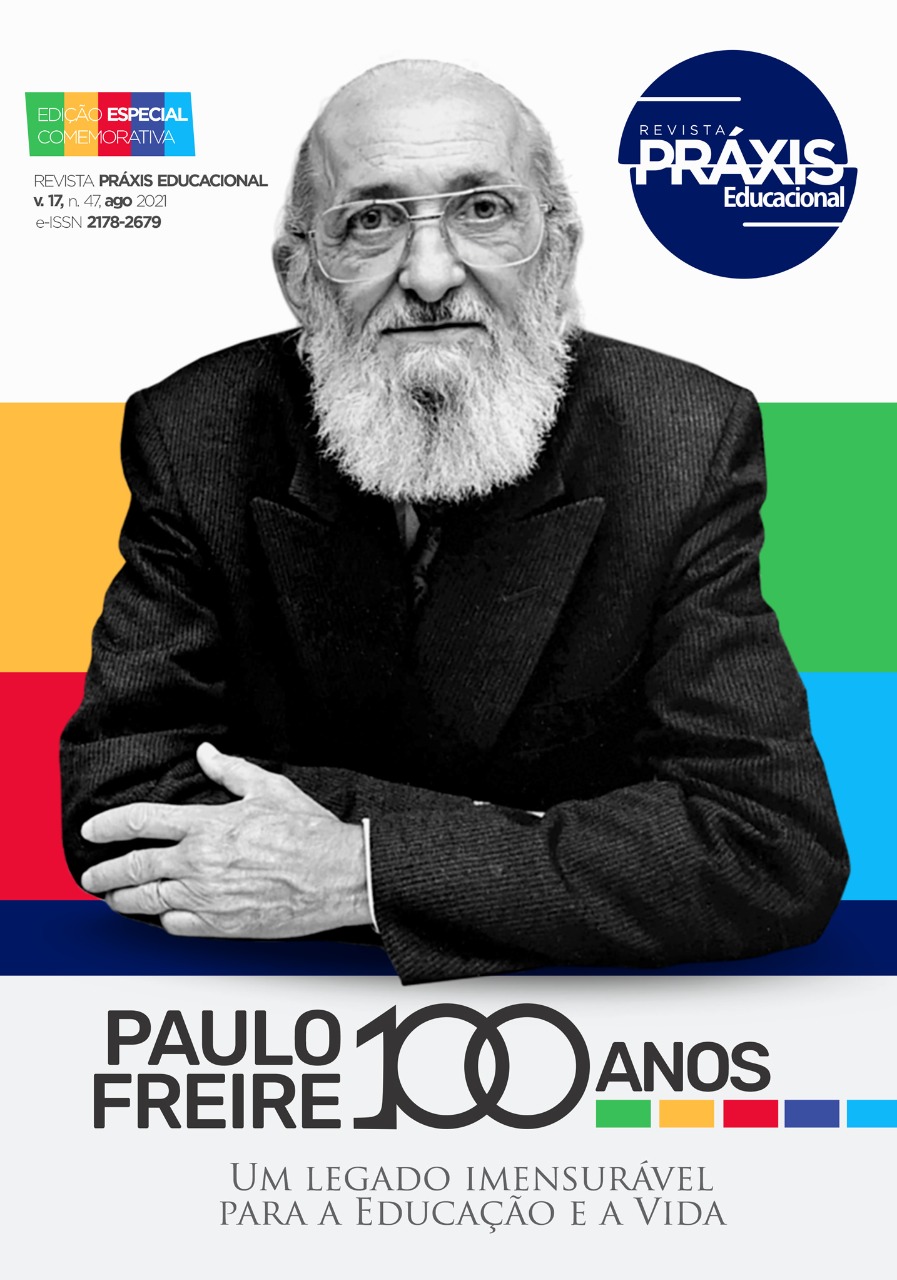Transgression and change of a non-existing curriculum for teaching additional languages to children
DOI:
https://doi.org/10.22481/praxisedu.v17i47.8608Keywords:
Additional Languages, Children, CurriculumAbstract
The main objective of this text is to reflect about the development of guidelines for the teaching of additional languages in the first years of Brazilian elementary education. Currently, consolidated national guidelines for the teaching of other languages exist from the 6th year of elementary school. The main attention in the reflections brought here points to the need to think about curricula, syllabus and guidelines that are based on the principles of linguistic and pedagogical responsibility. To do so, I use theoretical assumptions from Freire's Oppressed Pedagogy to support the fact that the elaboration of any direction in the educational field must guarantee equal opportunities. Thus reducing the possibilities of oppressive relationships that cancel positions, views and actions within schools. I approach the association between language and belonging to the world as a prescription for considering diversity and understanding what is different, attributing to the school curriculum the responsibility to discuss the right of all to learn in contextualized situations.
Downloads
References
APPLE, Michael W. Ideologia e Currículo. São Paulo: Brasiliense, 2006.
BAKHTIN/VOLOSHINOV. Marxismo e filosofia da linguagem. Tradução Michel Lahud e Yara Frateschi Vieira. 10. ed. São Paulo: Hucitec, 1929/2006.
BANKS, J.A; BANKS, C.A.M. Handbook of research on multicultural education, New York: Macmillan, 1995.
BRASIL. Lei de diretrizes e bases da educação nacional. Lei nº 9394, de 20 de dezembro de 1996. Estabelece as diretrizes da educação nacional. Brasília, DF, 1996. Disponível em http://www.planalto.gov.br/ccivil_03/leis/L9394.htm. Acesso em: 27 Abr. 2021.
______. Ministério da Educação. Base Nacional Comum Curricular. Brasília, 2018.
CAMERON, L. Teaching English to Young learners. Cambridge: Cambridge University Press, 2001.
ELLIS, G. Developing Intercultural Competence with Children in the English Language Class. Thresholds Disponível em: . Acesso em 28 abr. 2021.
FREIRE, Paulo. A Pedagogia do Oprimido. Rio de Janeiro: Paz e Terra, 1994.
HARGREAVES, A. Momentos de milênio: agendas de investigación educativa para la era postmoderna. Revista de Educación, 1997.
LYNCH, J. 2011. “An Observational Study of Print Literacy in Canadian Preschool classrooms.” Early Childhood Education Journal 38, no 5: 329–38.
MOON, J. Children Learning English. Oxford: Macmillan Heinemann, 2000.
MUSHARRAF, M. N. Islamic Education In Europe - A Comprehensive Analysis (1st Ed.). Australia: Australian Islamic Library. Retrieved from https://archive.org/details/EuropeanEducationPaper, 2015.
NAIDITCH, F. Educação bilíngüe e multiculturalismo: O exemplo americano. Educação, 30(1), 2007.
PENNYCOOK, A. The cultural politics of English as an International language. London: Longman, 1994.
______. Critical Applied Linguistics: a critical Introduction. Mahwah, NJ: Lawrence Erlbaum, 2001.
PHILLIPS, S. Young Learners. Oxford: Oxford University Press, 2003.
ROCHA, C. H Reflexões e Propostas sobre Língua Estrangeira no Ensino Fundamental I: Plurilinguismo, Multiletramentos e Transculturalidade. Campinas: Pontes Editores, 2012.
VAN EK, J. A; TRIM, J.L.M. (Orgs.). Across the Threshold. Oxford: Pergamon, 1984.
Downloads
Published
Issue
Section
License
Copyright (c) 2021 Práxis Educacional

This work is licensed under a Creative Commons Attribution-ShareAlike 4.0 International License.
Você é livre para:
Compartilhar - copia e redistribui o material em qualquer meio ou formato; Adapte - remixe, transforme e construa a partir do material para qualquer propósito, mesmo comercialmente. Esta licença é aceitável para Obras Culturais Livres. O licenciante não pode revogar essas liberdades, desde que você siga os termos da licença.
Sob os seguintes termos:
Atribuição - você deve dar o crédito apropriado, fornecer um link para a licença e indicar se alguma alteração foi feita. Você pode fazer isso de qualquer maneira razoável, mas não de uma forma que sugira que você ou seu uso seja aprovado pelo licenciante.
Não há restrições adicionais - Você não pode aplicar termos legais ou medidas tecnológicas que restrinjam legalmente outros para fazer qualquer uso permitido pela licença.












